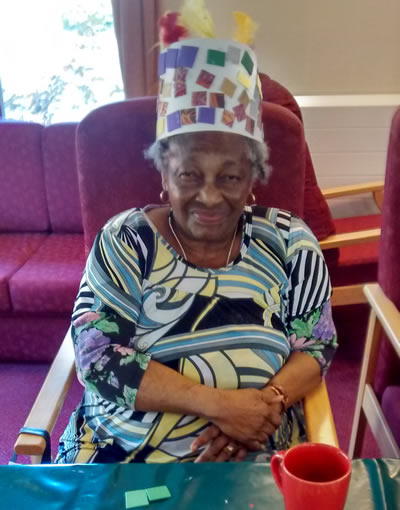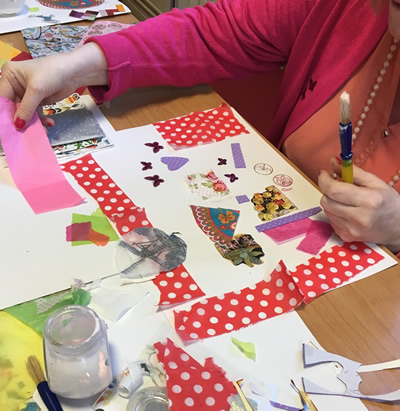This page tells about the funding and management of Lighting Up. It is mainly for people and agencies that are interested in working with Lighting Up through sponsorship. It will also be of interest if you are thinking of volunteering to help us with our management and admin. If you are considering volunteering as an artist, see the page Be one of our artists. If you are considering making a donation please see the page Make a donation.
Management of Lighting Up
Lighting Up was formed in 2007, with the help of Alzheimer’s Society and North Bristol Artists. We became a charity in 2011. As a small charity, i.e. one with an annual income of less than £5,000, Lighting Up is not required to register with the Charities Commission, but is governed by the same legislation as larger charities.
We are a group of artists with a special interest in working with people living with dementia. Our trustees, from a range of backgrounds including practising artists, form the management group. Our membership consists of volunteer artists and other supporters.
Funds
Our income is derived from donations and other fund raising. The main expenditure headings are materials, training and information. A small amount is spent on artists’ expenses but no artist or other Lighting Up helper is paid for what they do.
Evaluation
Our main aim is to support people who are living with dementia. We use art as a source of pleasure but also as an effective means of getting into contact with participants at difficult times in their lives.
In doing so we see Lighting Up as part of the wider process of supporting people who are living with dementia, contributing to lightening what is sometimes called the ‘care burden’, with its very personal effects and significant financial costs. This is consistent with research findings that demonstrate the benefits of art in health care (A Prospectus for arts and health – Department of Health 2007).
Records of Lighting Up sessions are used for quality control and to provide indicators of how far our aims are being achieved. We use three main indicators: attendance records, observation, participant feedback.

Evaluation tool 1: attendance records. Numbers of participants attending the Lighting Up sessions are recorded. These records demonstrate a regularity of attendance that is consistent with user satisfaction.
Evaluation tool 2: observation. We find that people who have significant levels of dementia can:
- be helped to choose what to do
- participate and concentrate at a Lighting Up session for up to 2 hours
- express pleasure
- create a piece of work while working individually or at times in a group
- remember what they have done from one month to the next
Carers have found that they can:
- get pleasure from seeing the person they care for enjoying themselves and getting a sense of achievement
- have some quality time sharing something with the person they care for, which may not happen often in their troubled lives
- gain some sense that the person they care for is less disabled than they had previously believed
Evaluation tool 3: participant feedback. The following solicited comments from carers indicate the impact of Lighting Up on the lives of three couples:
- “I had no idea my wife was so artistic, I wish we’d discovered this earlier.”
- “I haven’t seen my husband so engrossed in years, he really looks forward to the sessions, it’s a delight.”
- “After the session where we made beads, I found my husband showing our granddaughter how to do it, I never thought I’d see that, it was wonderful.”
More of the many appreciative comments from people with dementia and carers that we have captured are shown on the page for participants Like to try Lighting Up.
The future
We are committed to reaching out to more participants, in more places, across a wider range of diversity. To do so we are strengthening our formal structure, recruiting more artists, and will need significant further funding. We would also welcome further opportunities to work in partnership with other agencies as indicated in the following paragraphs.
Sponsorship
We will be pleased to discuss longer-term financial support, possibly through a sponsorship agreement with any individual or organisation. We are always able to put up good ideas! Please contact us to discuss potential sponsorship.

Giving practical help
In addition to involving more artists, we are looking for people who could help us with planning our work, looking after our records and even helping us with managing Lighting Up as we continue to develop. Please do contact us if you have time to offer on a voluntary basis and a skill that could fit with what we need. We suggest a minimum commitment of around two hours per week. You would be able to do the work from your own home and would have opportunities to see our work in operation. Also, and this is important, you would enjoy the work and enjoy working with us. Please contact us to help.
